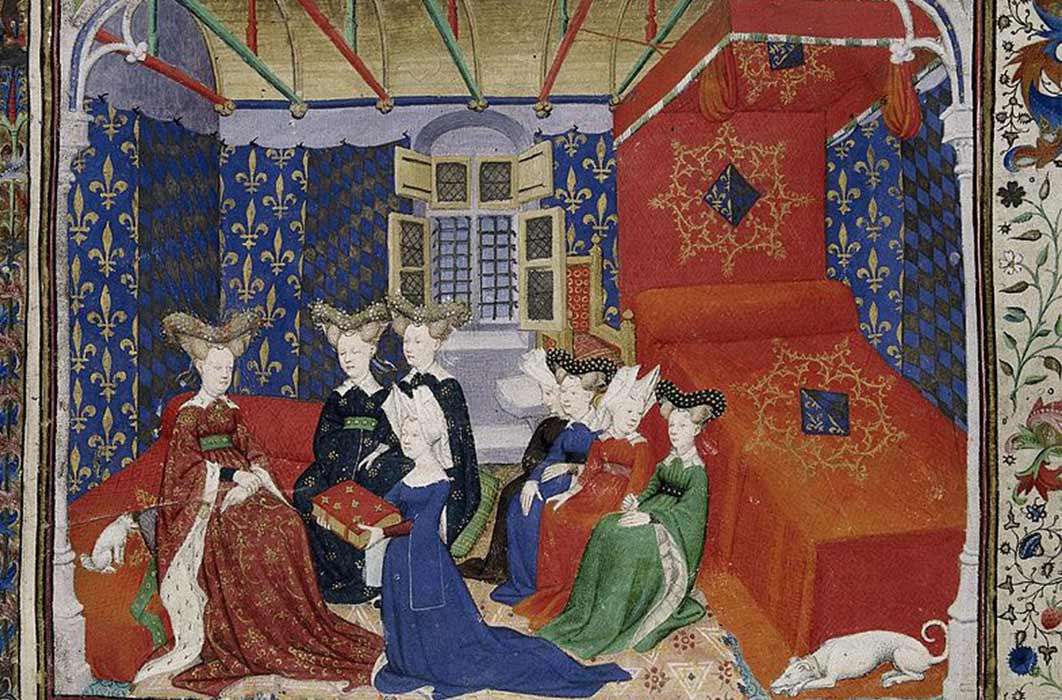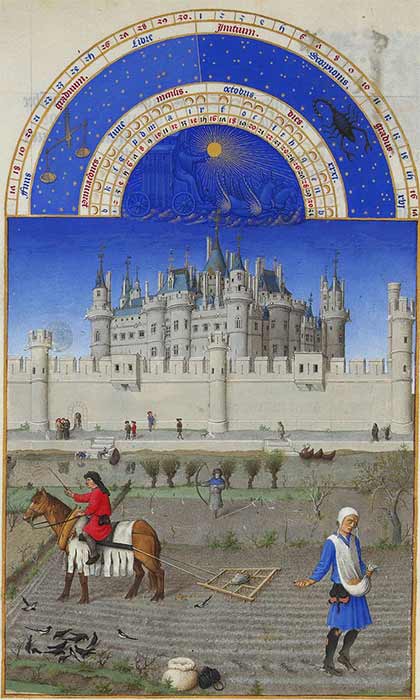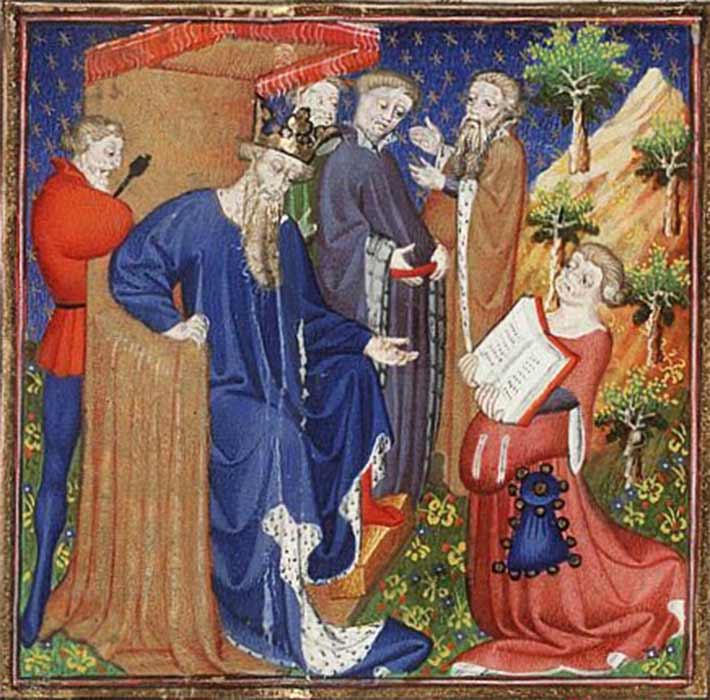
Christine de Pizan, 15th-Century Feminist And Social Commentator
“The female sex has been left defenseless for a long time now, like an orchard without a wall and bereft of a champion to take up arms in order to protect it…” The Book of the City of Ladies by Christine de Pizan, 1405.
Feminism in the 15th century? Widowed in her twenties, Christine de Pizan used her extensive education and excellent literary skills to write poetry, novels, biographies, an autobiography and religious commentary. Even more surprising, she became an advocate for women’s equality, 600 years before her time. During the late medieval period when women were often thought to personify evil and merely considered to be chattel, she promoted the need for recognition of women’s abilities and human rights. Christine produced the earliest feminist writings and was an accomplished poet with many wealthy, noble patrons. Her repertoire included: the source of female oppression; the lack of education for women; combating a misogynistic society; defending women’s rights and envisioning her ideas for a more equal world. In one of her books she asks herself with a hint of sarcasm, “Oh God, why wasn’t I born a male so that my every desire would be to serve you, to do right in all things, and to be as perfect a creature as man claims to be?”

The Louvre Palace, shown in this early 15th century illumination, representing the month of October in ‘Les très riches Heures du Duc de Berry’, was rebuilt during the reign of Charles V – Astrology was a contemporary topic. (Public Domain)
Childhood And Marriage
Born in Venice in 1364, Christine was actually Italian but spent the majority of her life in Paris. After studying at the University of Bologna, her father, Tommaso da Pizzano or Thomas de Pizan, became a physician and astrologer in Bologna. He had worked as a physician, court astrologer and Councilor of the Republic of Venice. In 1368 he accepted an appointment to the royal court of Charles V of France (called the Wise) as the king’s astrologer and medical advisor. Christine was about four-years-old when her family moved to Paris.
Growing up at the royal court of the Île-de-France, her childhood was spent amid the heady atmosphere that included the scholars, artists, astronomers and astrologers attending King Charles V in the halls of the Louvre Palace. Following in the manner of Frederick II and Alfonso X, Charles had a great respect for learning of all kinds, especially astronomy and astrology. At that time the practice of astrology was confined to the wealthy and the highly educated. By the end of the 15th century the printing press enabled the production of numerous texts, both in Latin and in the vernacular, devoted to the principles of astrology. The easy availability of low-cost books on astrology allowed the practice of seeking the secrets of the stars to become more popular among a wider population. Valuing education, Charles V endowed a college of astrology and medicine within the University of Paris around 1371 and donated a large collection of books, astronomical instruments and two scholarships. The school of astrology during that time was always associated with the school of medicine, one of the chief uses of astrology. Christine was raised in a realm where knowledge of all sorts was highly regarded.

Raoul de Presles presents his translation to Charles V of France (1410) (Public Domain)
Encouraged by her father, Christine received a classical education similar to upper-class boys of the period; the same as her two younger brothers. Her studies included the classical languages, literature, history, mythology and the Bible. Through her father’s influential position, she had access to the court’s excellent libraries. She was known to spend many hours reading in the royal palace library at the Louvre, also founded by Charles V. King Charles’ library contained over 1,200 books which was an enormous number for that age; more than ten percent of the texts concerned astrology and other occult topics.
- Telesilla, Warrior Poetess From Argos, Who Manned-Up On The Battlefield and Bedroom
- How Two Women Pulled Off a Medieval Manuscript Heist in Post-War Germany
- Ancient Laws and Women’s Rights: The 6000-Year-Old World War Continues
Christine demonstrated her literary abilities even as a child; she composed songs and ballads to entertain members of the royal court. When she came of age, her father’s significant position in the king’s inner circle enabled him to ensure an advantageous marriage for his talented daughter. In 1379 at the age of 15, which was not uncommon at the time, she was married to Etienne du Castel, a notary and secretary to the king. Although the marriage was arranged, she wrote of her especially happy union and of their three children; of whom only two survived to adulthood. Her husband was a nobleman and a scholar who, most unusually, encouraged her to continue her studies and writing.




